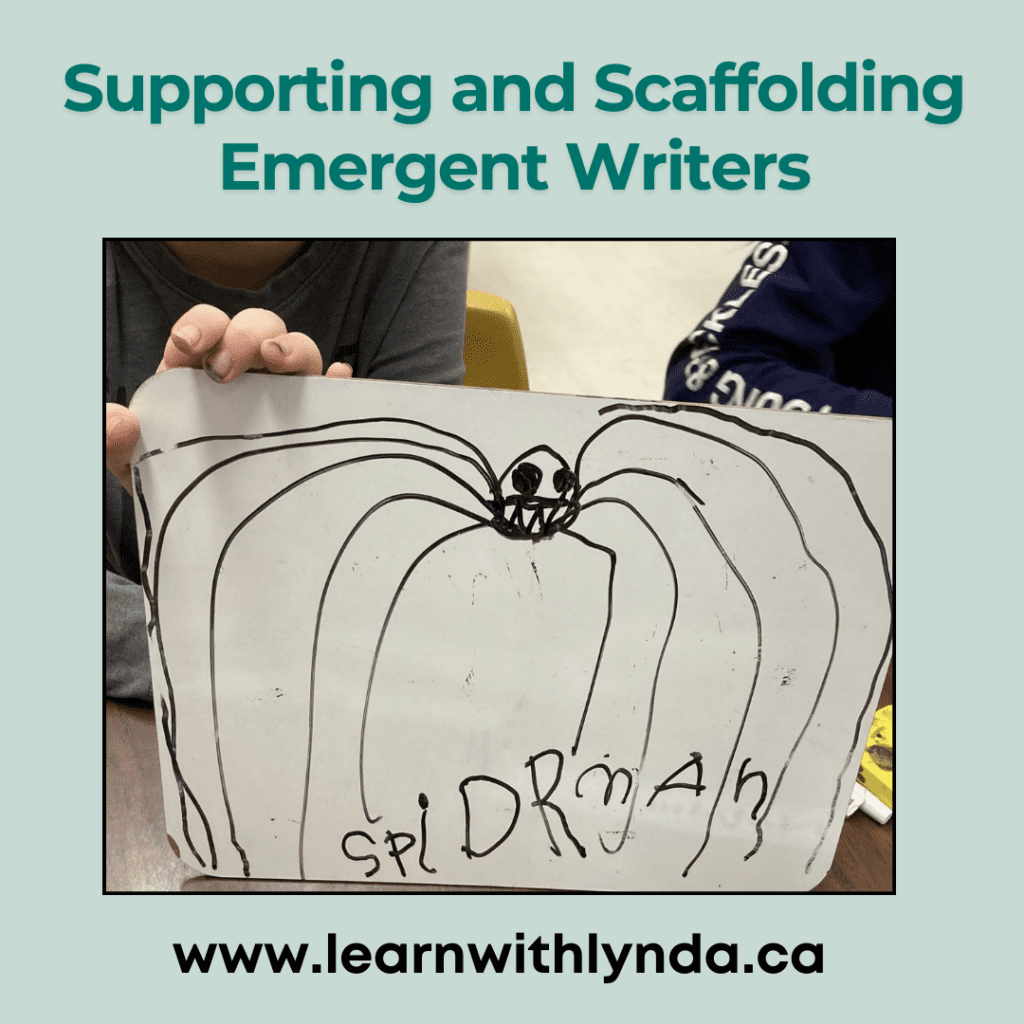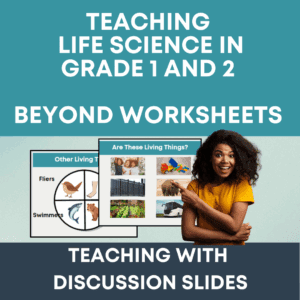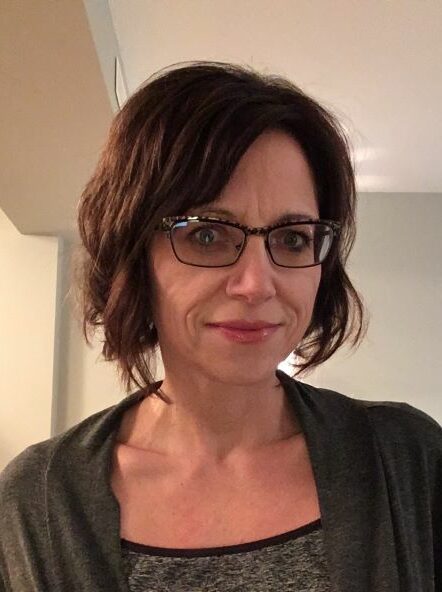Supporting student writing in my classroom, started with numerous opportunities to develop pre-writing skills. I did this by providing daily access to fine-motor invitations including playdoh, Lego, stickers, chalk, and other building activities.
I have also supported the children through whole group and small group guided drawings and letter formation lessons. These lessons started with images and letters that included straight lines. We then moved to circular lines and finally diagonal lines.
Supporting student writing included the gradual release of responsibility. The children had multiple opportunities to observe modeled writing, Students also participated in shared writing activities. They strengthened their letter and sound understanding through phoneme grapheme mapping practice with a focus on cvc words. High frequency words were also analyzed and practiced. The time I have invested in these pre-writing skills and guided spelling has resulted in children who have developed an interest in writing on their own.
In the past, I have introduced independent writing before the children were interested and ready which often resulted in frustration and anxiety. Taking the time to honour my students need to consolidate letter and sound thinking and to grow in their confidence has resulted in excited and joyful student writers.
Student Writing Examples – Exploration Phase
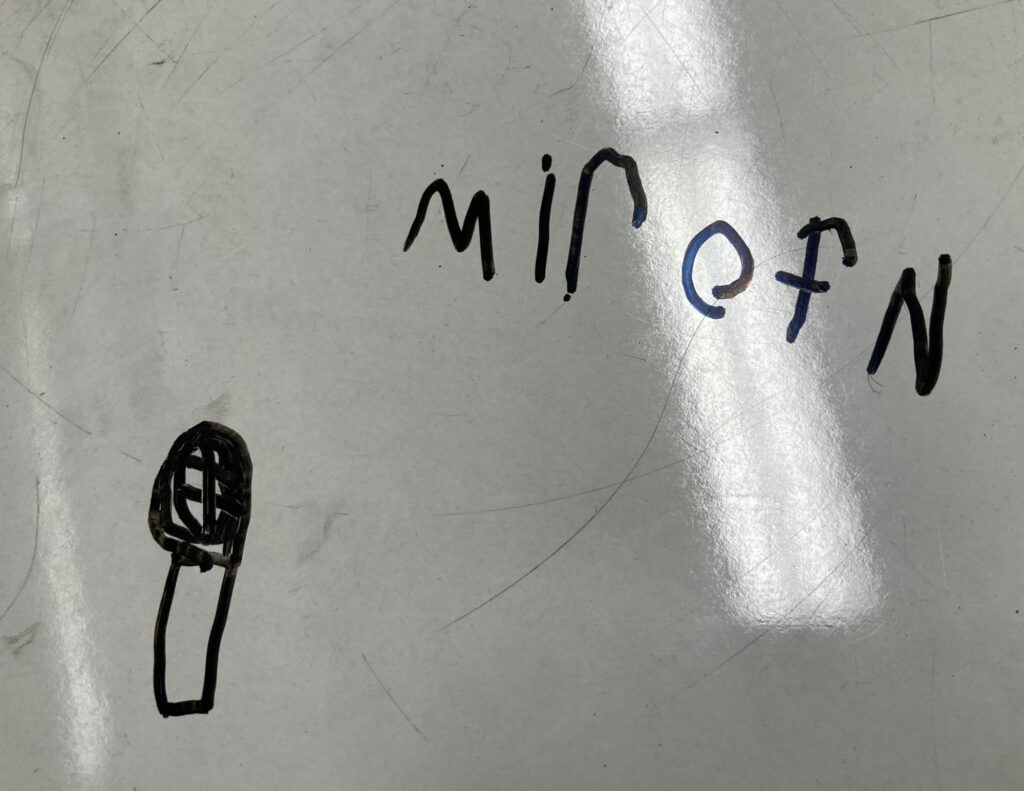
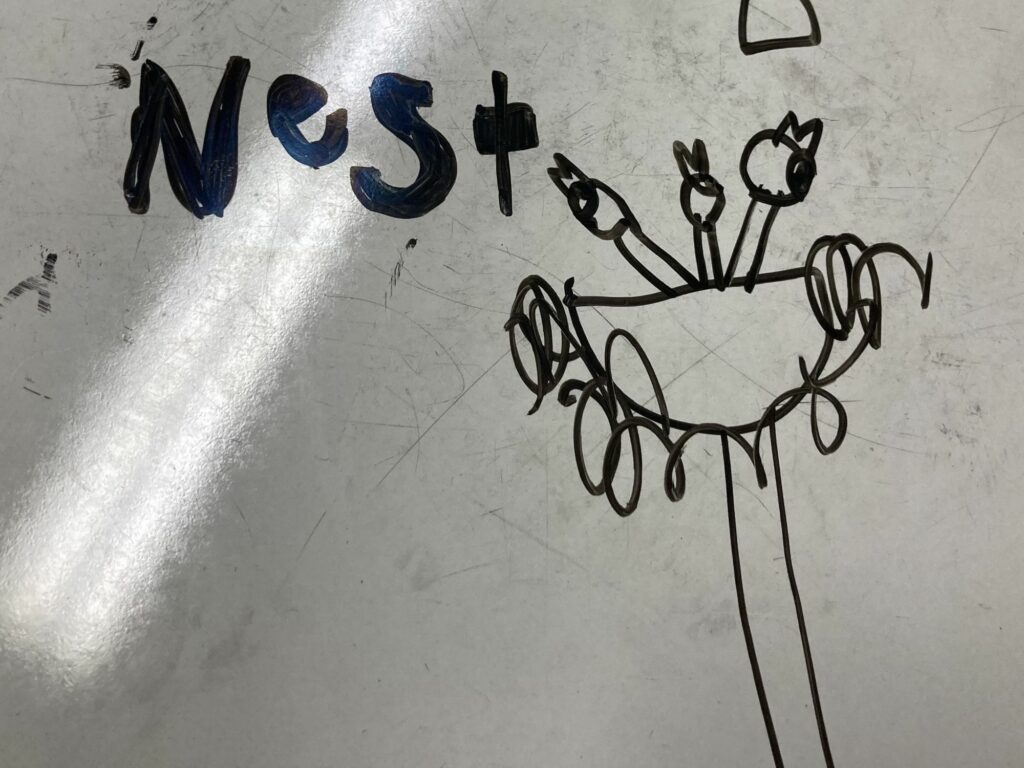
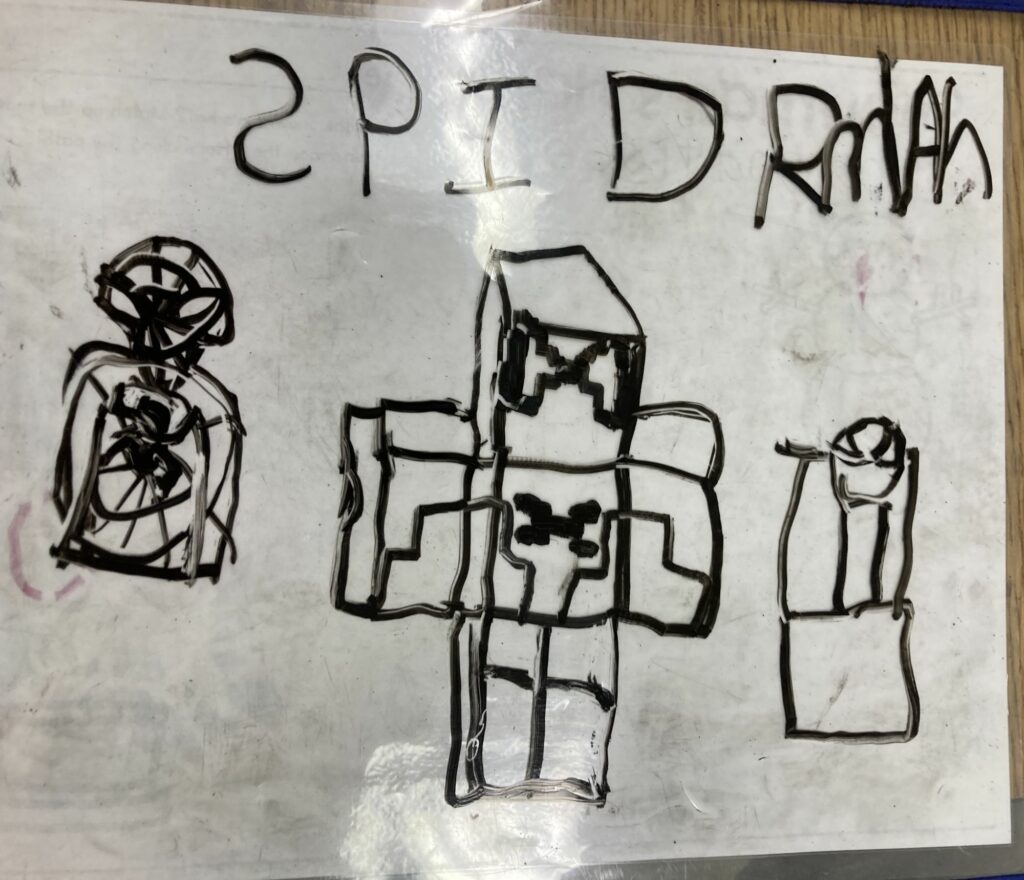
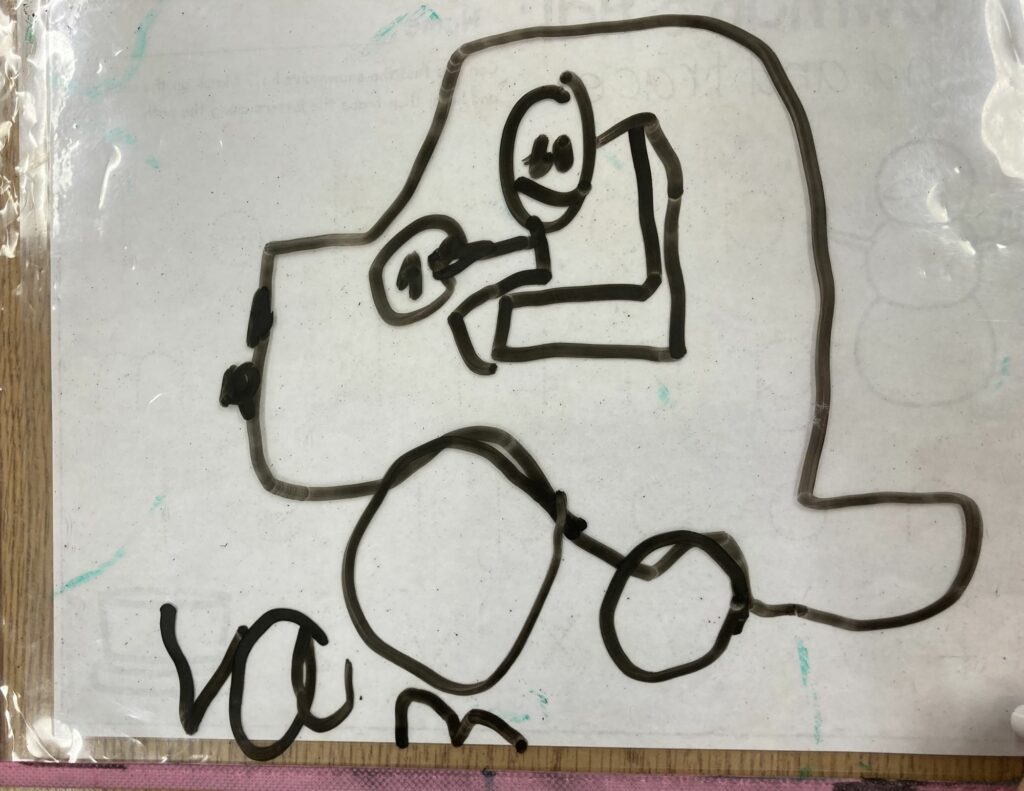
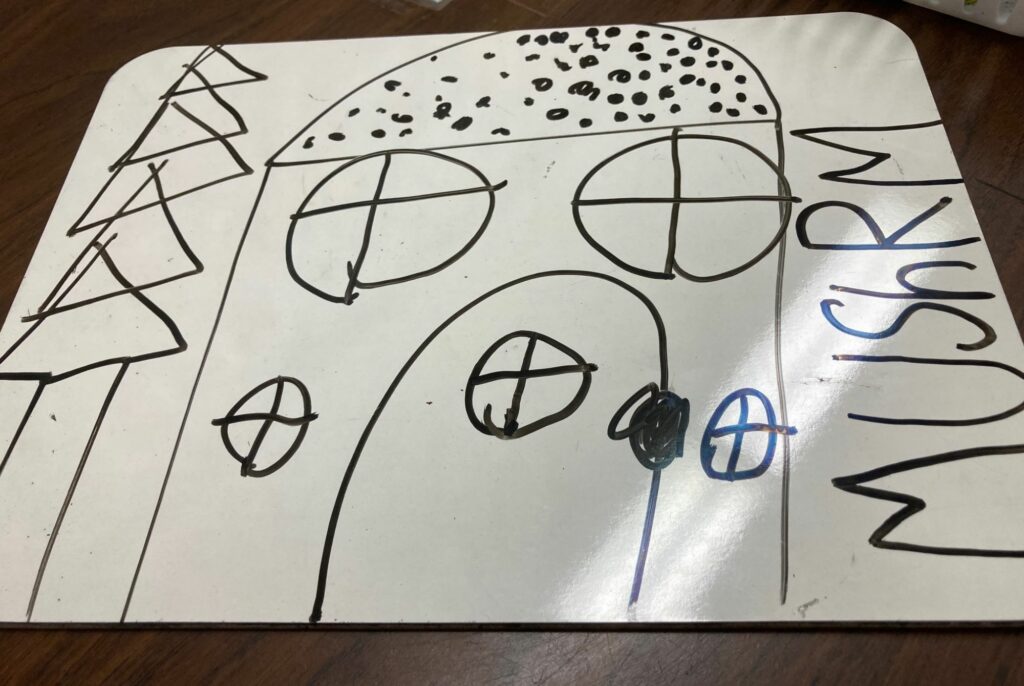
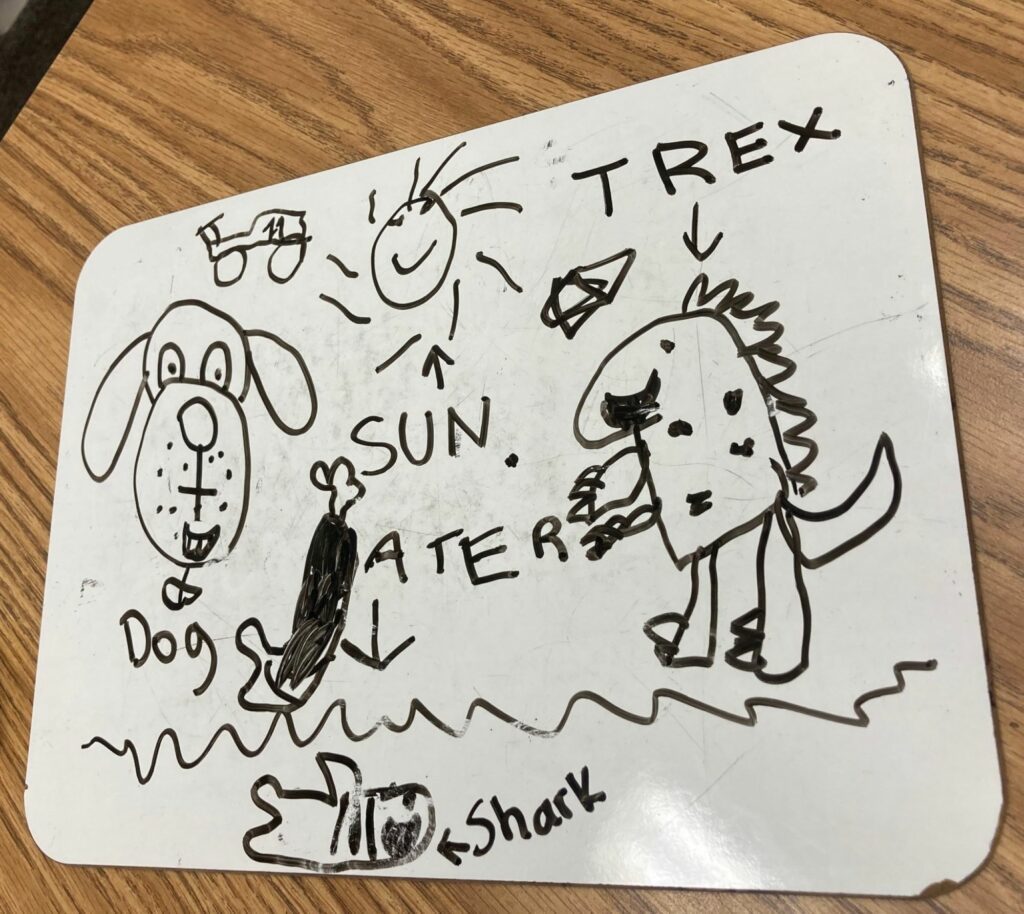

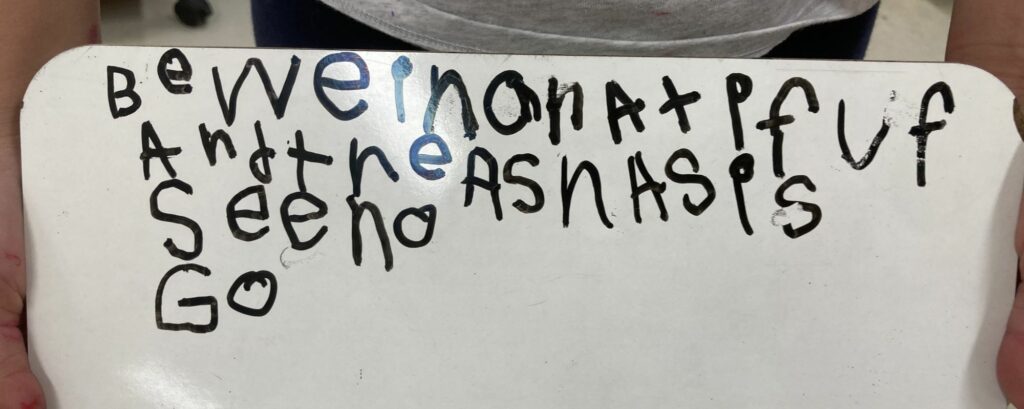
ReadingRockets.org reminds us that each writer is “different and there are variations in the way kids move through writing stages — it may not happen in the same way or at the same time and the lines between the stages can be blurry.”
Their webpage states that young children move through a series of stages as they are learning to write. The stages reflect a child’s growing knowledge of the conventions of literacy, including letters, sounds and spacing of words within sentences. Almost every interaction in a child’s world is preparing them to become a reader and writer.
I can’t agree enough! Celebrate where each child is at in their writing and remember to support and scaffold as they move towards the next stage of their writing journey.
Happy Learning,
Lynda

